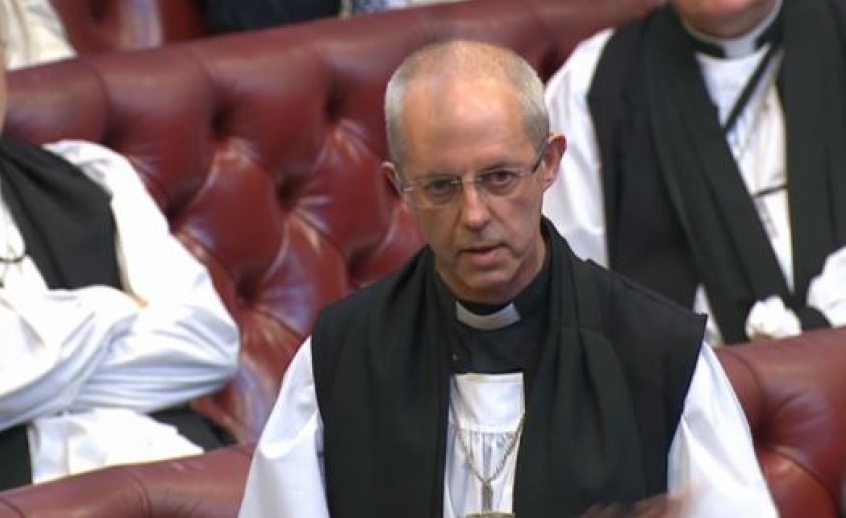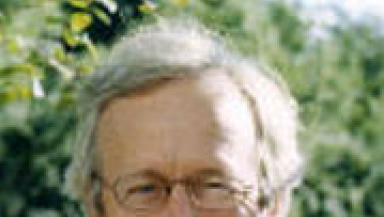The House of Lords has unanimously passed a motion to reduce its own size.
There is no consensus on how numbers should be cut but the move was heralded as "unique" by the Lord Speaker after the debate on Monday night.

"This is a significant step forward and represents a substantial consensus. It shows that Members of the Lords want reform and see the present size of over 800 as an obstacle in the way of the effective running of the House," said Lord Fowler.
"Now that the House has agreed that its size needs to be reduced, we must now work towards proposals on how this can be achieved."
Everyone agrees that a cull needs to take place. But among those vulnerable – and perhaps they are the most vulnerable – are members of the Bench of Bishops. By a quirk of history, the Church of England's leaders have a privileged, and some would say anachronistic, place in our system of government. Are they about to lose it – and should they?
With more than 800 members the House of Lords is the second largest chamber in the world after China. Appointments are controlled by the Prime Minister and often court controversy as they can be seen as political favours to allies. This was particularly true under David Cameron, whose rate of appointments topped any other prime minister's since the Life Peerages Act in 1958.
There is no cap on the total number of peers so, particularly when the House is weighted against the current government as it is currently, the temptation will always be for prime ministers to flood the Lords with allies.
Plans for a reform by the Liberal Democrats in coalition were blocked by their Conservative partners but now criticism of the size, cost and operation of the House of Lords has reached a zenith.
Church of England bishops make up 26 of the total number of peers. In any reduction in size of the Lords, their presence will come under increasing scrutiny.
In Monday's debate the Labour peer Lord Foulkes said he favoured an "assessment of past performance, including attendance, voting record, and service on committees" as a way to cut numbers.
He added: "If one looks at the figures, one sees that some peers attend less than 10 per cent of the time, a lot of whom I could name. In fact, the worst attenders are the cross-benchers and the bishops. They are hardly ever here compared with others."
Liberal Democrat peer Lord Scriven joined others in questioning: "Why are the bishops given a privileged status in this House, given that we are a multicultural country?"

But the Bishop of Birmingham, David Urquhart, has consistently backed calls for a smaller House of Lords, even at the cost of a diminution of the number of Anglican bishops.
"We can and should, as we are doing today, grasp the opportunity to take responsibility ourselves for reducing the size of the House as best we can," he said on Monday on behalf of the other bishops.
The debate comes after a similar one in October where Urqhart, as convenor of the Lords Spiritual, said: "We acknowledge that if the overall size of the House is to be reduced, of course the Lords spiritual must play their full part in that arrangement.
"That means that we would indeed continue to look constructively at a decrease in our own numbers in proportion with an overall decrease in the size of your Lordships' House."
A statement from the C of E supported this position: "Bishops numbers have been capped for over a century and a half and they retire at age 70. They are the only grouping in the House to which those conditions apply.
"The bishops in the Lords have long argued that the size of the House needs to be addressed and have said that if there were to be a reduction in its numbers then the Lords Spiritual would need to look constructively at how they can help achieve that end."
Voting for your own demise is not common in politics. At least not deliberately. The bishops and peers generally deserve credit for backing a move that might lead to their own loss of status – the proverbial turkey has voted for Christmas.
As the debate over numbers in the House of Lords continues the bishops' position will be in the spotlight again and again. Alongside the Lib Dem Lord Scriven, questions will be asked as to why they have an automatic position when we are a secular society.
The answer to this question is not to remove them altogether in the search for a mythical "neutral" playing field. Rather representatives from other faiths, denominations and belief groups should also be represented in the second chamber.
The Church of England, to their credit, supports this stance. A spokeswoman said: "Bishops have called for more representatives of other denominations and faiths to be appointed to the House, and this is something that the Appointments Commission has sought to achieve.
"The question of who constitutes a formal representative or a leader of other faiths and denominations is not a simple one and the Lords Spiritual are on record as saying they would happily work with the Appointments Commission to help it look at this in more detail."
Under this approach, rather than excluding faith, all religions are welcomed and included into the public sphere – the hallmarks of a truly multicultural society.













